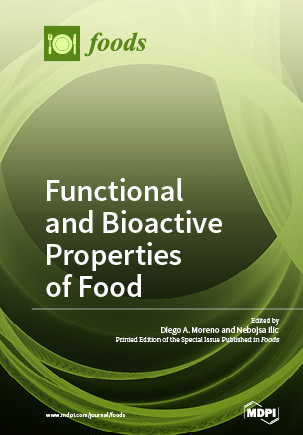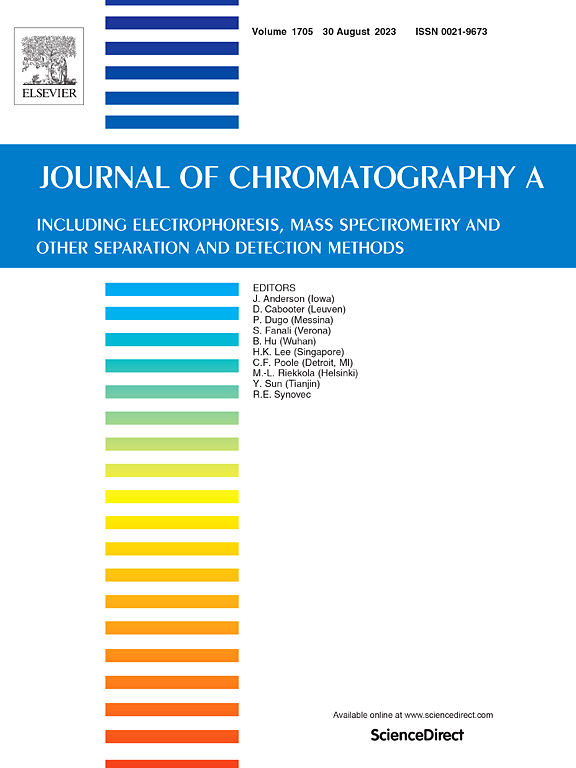Matcha
How to submit an article:
- Registered users can submit any published journal article that has a unique DOI (Digital Object Identifier) name or link to Research Hub.
- For example, you can paste the full DOI link:
https://doi.org/10.1109/5.771073or just the DOI name:10.1109/5.771073into the field above and click submit. - The person who is first to submit a valid article to Research Hub will forever be credited for it, and every article submission earns you +6 Research Points.
Published research studies are articles that present the findings of original research that has undergone a peer-review process and has been made publicly available in scholarly journals, books or other media.

Retrospecting the Antioxidant Activity of Japanese Matcha Green Tea–Lack of Enthusiasm?
2021 May 31 Applied Sciences Sivanesan I, Gopal J, Muthu M, Chun S, Oh JW
Review Article Matcha Green Tea AntioxidantThere is a notable gap in scientific research on the potential health benefits and antioxidant activity of matcha tea compared to green tea.

Health Benefits and Chemical Composition of Matcha Green Tea: A Review
2020 Dec 27 Molecules Kochman J, Jakubczyk K, Antoniewicz J, Mruk H, Janda K
Review Article Matcha Mental HealthShaded gardening of Japanese matcha creates high-quality tea with unique compounds that can boost physical and mental health.

Effects of Matcha Green Tea Powder on Cognitive Functions of Community-Dwelling Elderly Individuals
2020 Nov 26 Nutrients Sakurai K, Shen C, Ezaki Y, Inamura N, Fukushima Y, Masuoka N, et al.
Randomised Controlled Trial Cognitive Function Matcha Brain HealthDaily supplementation of Matcha Green Tea Powder is found to enhance cognitive functions in elderly women.

Antioxidant Properties and Nutritional Composition of Matcha Green Tea
2020 Apr 12 Foods Jakubczyk K, Kochman J, Kwiatkowska A, Kałduńska J, Dec K, Kawczuga D, et al.
Network Pharmacology Antioxidant MatchaThe antioxidant potential and substance levels in Matcha tea is affected by the harvest period and water temperature used for preparation.

Matcha green tea (MGT) inhibits the propagation of cancer stem cells (CSCs), by targeting mitochondrial metabolism, glycolysis and multiple cell signalling pathways
2018 Aug 23 Aging Bonuccelli G, Sotgia F, Lisanti MP
Experimental Study Cancer Anticancer Breast Cancer MatchaMatcha green tea potentially inhibits the growth of breast cancer cells by disrupting metabolic action within the cells and reprogramming their activities.
Research insights are moderated by the Research Hub team and offer an at-a-glance overview of interesting research findings.

2021 Applied Sciences
There is a notable gap in scientific research on the potential health benefits and antioxidant activity of matcha tea compared to green tea.
Review Article Antioxidant Green Tea
Retrospecting the Antioxidant Activity of Japanese Matcha Green Tea–Lack of Enthusiasm?
Sivanesan I, Gopal J, Muthu M, Chun S, Oh JW

2020 Molecules
Shaded gardening of Japanese matcha creates high-quality tea with unique compounds that can boost physical and mental health.
Review Article Mental Health
Health Benefits and Chemical Composition of Matcha Green Tea: A Review
Kochman J, Jakubczyk K, Antoniewicz J, Mruk H, Janda K

2020 Nutrients
Daily supplementation of Matcha Green Tea Powder is found to enhance cognitive functions in elderly women.
Randomised Controlled Trial Brain Health Cognitive Function
Effects of Matcha Green Tea Powder on Cognitive Functions of Community-Dwelling Elderly Individuals
Sakurai K, Shen C, Ezaki Y, Inamura N, Fukushima Y, Masuoka N, et al.

2020 Foods
The antioxidant potential and substance levels in Matcha tea is affected by the harvest period and water temperature used for preparation.
Network Pharmacology Antioxidant
Antioxidant Properties and Nutritional Composition of Matcha Green Tea
Jakubczyk K, Kochman J, Kwiatkowska A, Kałduńska J, Dec K, Kawczuga D, et al.

2018 Aging
Matcha green tea potentially inhibits the growth of breast cancer cells by disrupting metabolic action within the cells and reprogramming their activities.
Experimental Study Anticancer Breast Cancer Cancer
Matcha green tea (MGT) inhibits the propagation of cancer stem cells (CSCs), by targeting mitochondrial metabolism, glycolysis and multiple cell signalling pathways
Bonuccelli G, Sotgia F, Lisanti MP
Review Articles
Review articles summarise and critically evaluate the current state of research on a specific topic or field by synthesising multiple primary research studies.

Retrospecting the Antioxidant Activity of Japanese Matcha Green Tea–Lack of Enthusiasm?
2021 May 31 Applied Sciences Sivanesan I, Gopal J, Muthu M, Chun S, Oh JW
Review Article Matcha Green Tea AntioxidantThere is a notable gap in scientific research on the potential health benefits and antioxidant activity of matcha tea compared to green tea.

Health Benefits and Chemical Composition of Matcha Green Tea: A Review
2020 Dec 27 Molecules Kochman J, Jakubczyk K, Antoniewicz J, Mruk H, Janda K
Review Article Matcha Mental HealthShaded gardening of Japanese matcha creates high-quality tea with unique compounds that can boost physical and mental health.
Clinical Trials
Clinical trials are research studies that involve people and are conducted to evaluate the safety and efficacy of new treatments or interventions, such as drugs, medical devices, or behavioural therapies.
Study Protocols
Published study protocols are detailed plans that outline the objectives, methodology, statistical analyses, and organisation of a research study that have been made publicly available for others to review and use as a reference.
Presentation Slides

Review Article
There is a notable gap in scientific research on the potential health benefits and antioxidant activity of matcha tea compared to green tea.
Sivanesan I, Gopal J, Muthu M, Chun S, Oh JW

Review Article
Shaded gardening of Japanese matcha creates high-quality tea with unique compounds that can boost physical and mental health.
Kochman J, Jakubczyk K, Antoniewicz J, Mruk H, Janda K

Randomised Controlled Trial
Daily supplementation of Matcha Green Tea Powder is found to enhance cognitive functions in elderly women.
Sakurai K, Shen C, Ezaki Y, Inamura N, Fukushima Y, Masuoka N, Hisatsune T

Network Pharmacology
The antioxidant potential and substance levels in Matcha tea is affected by the harvest period and water temperature used for preparation.
Jakubczyk K, Kochman J, Kwiatkowska A, Kałduńska J, Dec K, Kawczuga D, Janda K

Experimental Study
Matcha green tea potentially inhibits the growth of breast cancer cells by disrupting metabolic action within the cells and reprogramming their activities.
Bonuccelli G, Sotgia F, Lisanti MP

Experimental Study
Matcha tea holds nearly 137 times the concentration of epigallocatechin gallate, an important catechin, compared to common green teas.
Weiss DJ, Anderton CR
Executive Summary
Write an executive summary in the form of a blog article on the topic of "Research into Chinese medicine treatment for Matcha" summarising the research below and using language that can be easily understood by patients and avoiding medical jargon using a professional and caring tone of voice.
Write an executive summary in the form of a blog article on the topic of "Researched Chinese medicine treatments for Matcha" summarising the research below in an objective and easy to understand way, and using language that can be easily understood by patients. Group the article into Chinese medicine treatments first, followed by nutrition and other treatments. Avoid using medical jargon and use a professional and caring tone of voice.
Write me a concise but easy to understand executive summary on the topic of "Chinese medicine treatments for Matcha" based on the following research that I will give you. Your summary should be 2 paragraphs long in Australian English spelling and include references to the studies.
A Review Article published in 2021 in the journal Applied Sciences found that There is a notable gap in scientific research on the potential health benefits and antioxidant activity of matcha tea compared to green tea. The strategy used in this study was a literature review that critically evaluated existing research publications on both green tea and matcha tea. This focused primarily on the concentration and potential benefits of their bioactive components and polyphenols. Key areas of comparison included antioxidant activity and potential health benefits in each tea variety. The comparison was made simultaneously considering the scarcity of studies specifically focused on matcha tea. The discussion of the results became apparent that there is a significant discrepancy in the volume of scientific literature available on green tea compared to that on matcha. Despite matcha tea being rich in bioactive components and polyphenols, the lack of research has left its potential health benefits and antioxidant activity largely unexplored. This discrepancy emphasizes the immediate need to address the gap between public usage and awareness of matcha tea's benefits with scientific approval and understanding.
A Review Article published in 2020 in the journal Molecules found that Shaded gardening of Japanese matcha creates high-quality tea with unique compounds that can boost physical and mental health. This study reviewed and compiled health benefits of matcha tea, a type of powdered green tea grown traditionally in Japan with plants shaded during growth. This shading process promotes the synthesis and accumulation of unique biologically active compounds, which includes theanine, caffeine, chlorophyll, and a variety of catechins, with matcha offering a condensed source of these elements. The review indicated that matcha is considered the highest quality tea due to its distinctive chemical composition and prized flavor. In discussing the results, a major conclusion reached was that matcha tea has effective health-promoting attributes due to the tea's high content of antioxidant and anti-inflammatory substances. Such benefits have largely been credited to its significant proportion of catechins - a type of phenolic compound beneficial to human health. The high antioxidant potential of the tea and its subsequent ability to help prevent various diseases and support cognitive function underscores the value in regular consumption of matcha for not only physical health, but also mental health.
A Randomised Controlled Trial published in 2020 in the journal Nutrients found that Daily supplementation of Matcha Green Tea Powder is found to enhance cognitive functions in elderly women. The research performed a randomized, double-blind, placebo-controlled trial over a period of 12 weeks. The involvement of 61 participants who were community-dwelling elderly people was arranged, and these participants were randomly assigned to either a test group receiving a daily drink containing 3 grams of Matcha Green Tea Powder or a placebo group. Assessments of their cognitive function changes were made using a psychometric test battery. Also, the participants' daily food intake was monitored and recorded using a Brief-type Self-administered Diet History Questionnaire. The results clearly indicated substantial enhancement in cognitive functions in women who were part of the active test group. It was observed in the Montreal Cognitive Assessment (MoCA) scoring scheme. An interesting pattern that came up in the dietary analysis was the significant inverse correlation between consumption of vitamin K in everyday food apart from test drinks and a change in MoCA. Overall, the study indicates that regular intake of Matcha Green Tea Powder can have protective effects against cognition decline, particularly in elderly women residing in the community.
A Network Pharmacology published in 2020 in the journal Foods found that The antioxidant potential and substance levels in Matcha tea is affected by the harvest period and water temperature used for preparation. The study's methodology was set to evaluate the antioxidant capacity and significant component levels of traditional and daily Matcha green tea, originating from Japan. It focused on the content of essential vitamins, flavonoids, and other polyphenols. The variations in these components were examined by making infusions at different temperatures - 25°C, 70°C, 80°C, and 90°C. Approximately 1.75g of the plant material was used with 100mL of distilled water in these preparations. The comparison was made between Matcha tea from the first and second harvests, as well as from the second and third harvests. In the discussion of results, infusions made from the daily Matcha harvest, especially the one prepared at 90°C, were observed to have the highest amount of substances possessing antioxidant properties. Notably, the concentrations of these beneficial substances tended to vary according to the timing of the plant's harvest and the temperature of water used for infusion preparation. Particularly, flavonoids, polyphenols, and vitamin C showed appreciable fluctuation across these variables, confirming a vital link between preparation details and the health benefits furnished by Matcha green tea.
A Experimental Study published in 2018 in the journal Aging found that Matcha green tea potentially inhibits the growth of breast cancer cells by disrupting metabolic action within the cells and reprogramming their activities. The research utilized MCF7 cells, a human breast cancer cell line, as a standard model for testing. To understand the effects of Matcha green tea (MGT) at the cellular level, the team conducted two sets of detailed examinations, metabolic phenotyping and proteomics analysis. Metabolic phenotyping explored the effects of the MGT on cellular metabolism, looking at its influence on both oxidative mitochondrial metabolism and glycolytic flux. Proteomics analysis identified specific proteins and enzymes which were affected by the MGT treatment. The findings from the metabolic phenotyping displayed that MGT treatment slowed down both oxidative mitochondrial metabolism and glycolytic flux, pushing cancer cells towards a less active metabolic state. The proteomics analysis discovered specific mitochondrial proteins and glycolytic enzymes down-regulated by the introduction of MGT. Detailed bioinformatics analysis of the proteomics data revealed that the MGT drastically affected mTOR signalling, particularly down-regulating numerous components of the 40S ribosome, suggesting a possibility of MGT being used as an inhibitor of mTOR. Other pathways, including anti-oxidant response, cell cycle regulation, and interleukin signalling, were also significantly affected.
A Experimental Study published in 2003 in the journal Journal of Chromatography A found that Matcha tea holds nearly 137 times the concentration of epigallocatechin gallate, an important catechin, compared to common green teas. Researchers devised a fast method to evaluate the presence of five key catechins and caffeine in matcha using micellar electrokinetic chromatography. This analytical process examined matcha in both its water-based and methanol extractions, and then it was juxtaposed with the outcome of a water extraction of a popular green tea. The comparison was made basing it on a milligram catechin per gram of dry leaf parameter. In lieu of the data results from this methodology, it was observed that the available concentration of epigallocatechin gallate, a major catechin, from consuming matcha significantly surpassed - by 137 folds - the quantity obtainable from a well-known green tea called 'China Green Tips.' Furthermore, it also exceeded by at least three times the largest concentration reported in other green teas, according to existing literature. These results underscore matcha's significantly higher health potential when compared to other conventional green teas.
Moderation Tools
Topic
Sign In
Users not signed in are limited to viewing the 5 most recent items of content.